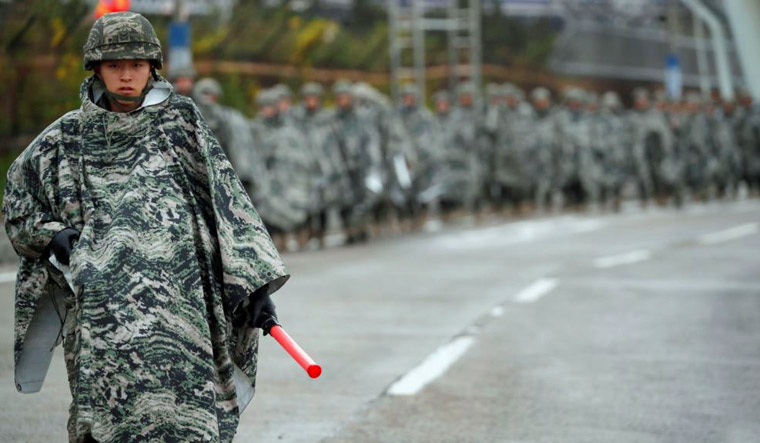The US and South Korea said on Sunday they will end their annual large-scale joint military exercises as Washington pursues efforts to improve ties with North Korea. The decision was made to ease South's relationship with the North and in wake of US President Donald Trump's meeting with North Korean leader Kim Jong-un in an effort to denuclearise North Korea.
There are close to 30,000 US troops stationed in South Korea. But, Trump has ruled out immediate withdrawal of the troops because the decision could face a strong pushback from the US Congress and Japan, whose government is wary of North Korea's intentions. But the drills by the troops will come to a halt. Besides, US president has complained repeatedly over the cost of the military drills, which Pyongyang has always condemned as provocative rehearsals for invasion.
The decision was taken after a phone call between South Korean Defence Minister Jeong Kyeong-doo and his US counterpart Patrick Shanahan, "both sides decided to conclude the Key Resolve and Foal Eagle series of exercises", said a Pentagon statement.
Foal Eagle is the biggest of the regular joint exercises held by the allies, and has always infuriated Pyongyang. The exercise that involved 200,000 South Korean forces and some 30,000 US soldiers, is accompanied by Key Resolve, a computer-simulated war game conducted by military commanders which usually begins in March and runs for about 10 days.
Now, the two allies will conduct only outside manoeuvre trainings and united command exercises to continue firm military readiness, Seoul's defence ministry said.
"Suspending or downgrading the US-South Korean drills may hurt the readiness of the two militaries, but I don't think it's going to be a serious security threat to South Korea," Ahn Chan-il, the president of the World Institute for North Korea Studies in Seoul, said.
"The South's conventional forces outclass the North's and given the current situation (with the US and the existing sanctions), it's highly unlikely that Pyongyang will do anything with its nuclear weapons in the foreseeable future," he added.
Since Trump's first summit with Kim last year in Singapore, in which both leaders signed a vaguely-worded commitment to denuclearisation of the Korean peninsula, the US and Seoul have scaled back or scrapped several joint military drills, and US bombers are no longer flying over South Korea.



